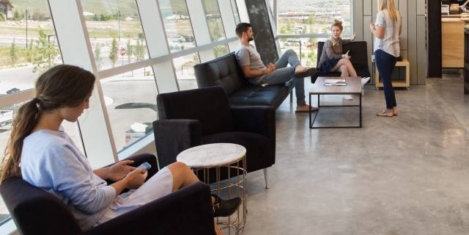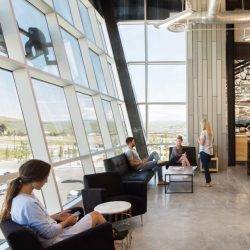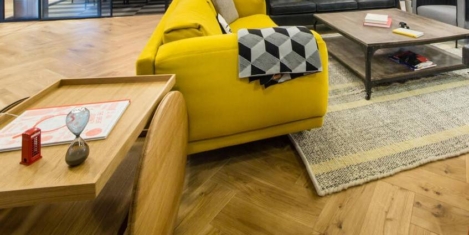June 27, 2018
Third of UK employees ready to leave as managers fail to meet expectations
 Nearly half of UK managers (45.1 percent) are ill-prepared for the role, and a quarter (25 percent) of employees say their manager does not have the right skills for effective management, claims new research by Bridge by Instructure. The study, based on interviews of 1,000 managers and employees across the UK on their attitudes towards both management and learning and development, revealed that more than half of those who responded (53.4 percent) think managers need more training to perform as a manager and, almost half (45 percent) think managers need to be given time to operate as a manager rather than having those responsibilities ‘bolted on’ to their existing role. (more…)
Nearly half of UK managers (45.1 percent) are ill-prepared for the role, and a quarter (25 percent) of employees say their manager does not have the right skills for effective management, claims new research by Bridge by Instructure. The study, based on interviews of 1,000 managers and employees across the UK on their attitudes towards both management and learning and development, revealed that more than half of those who responded (53.4 percent) think managers need more training to perform as a manager and, almost half (45 percent) think managers need to be given time to operate as a manager rather than having those responsibilities ‘bolted on’ to their existing role. (more…)













 More than a quarter of managers (27 percent) in British companies would likely accept a salary cut to work for a company that has a clear purpose beyond profit a new report claims. A third (32 percent) would actually consider leaving their job if a greater purpose was unclear, while more than half (53 percent) would if their company’s values and purpose didn’t align with their own. The YouGov survey, commissioned by Danone UK, highlights the importance of having a defined company purpose that marries commercial success with social progress. The findings support a new report by not-for-profit think tank Tomorrow’s Company and Danone UK, that explores the importance of having a purpose beyond profit in helping companies to prosper in the face of workplace challenges created by an uncertain world.
More than a quarter of managers (27 percent) in British companies would likely accept a salary cut to work for a company that has a clear purpose beyond profit a new report claims. A third (32 percent) would actually consider leaving their job if a greater purpose was unclear, while more than half (53 percent) would if their company’s values and purpose didn’t align with their own. The YouGov survey, commissioned by Danone UK, highlights the importance of having a defined company purpose that marries commercial success with social progress. The findings support a new report by not-for-profit think tank Tomorrow’s Company and Danone UK, that explores the importance of having a purpose beyond profit in helping companies to prosper in the face of workplace challenges created by an uncertain world. 


 There have already been warnings from workplace experts that the legal profession isn’t one to choose for those starting out on their careers as it’s ripe for automation, and a new survey claims these changes are happening fast. According to a survey of over a 100 law firms by CBRE, nearly half (48 percent) are already utilising Artificial Intelligence (AI) and a further 41 percent have imminent plans to do so. Of the firms already employing AI, 63 percent of firms are using it for legal document generation and review, and the same proportion for e-discovery. Due diligence (47 percent) and research (42 percent) were also common applications, along with compliance and administrative legal support (each 32 percent). The use of AI will affect employment levels, with the greatest impact predicted at the junior and support levels, where nearly half (45 percent) of firms believing that there will be a reduction in headcount. In contrast, only 7 percent of firms believe that senior headcount levels will be reduced.
There have already been warnings from workplace experts that the legal profession isn’t one to choose for those starting out on their careers as it’s ripe for automation, and a new survey claims these changes are happening fast. According to a survey of over a 100 law firms by CBRE, nearly half (48 percent) are already utilising Artificial Intelligence (AI) and a further 41 percent have imminent plans to do so. Of the firms already employing AI, 63 percent of firms are using it for legal document generation and review, and the same proportion for e-discovery. Due diligence (47 percent) and research (42 percent) were also common applications, along with compliance and administrative legal support (each 32 percent). The use of AI will affect employment levels, with the greatest impact predicted at the junior and support levels, where nearly half (45 percent) of firms believing that there will be a reduction in headcount. In contrast, only 7 percent of firms believe that senior headcount levels will be reduced.
















July 11, 2018
Challenging some of the most commonly held misconceptions about coworking
by John Williams • Comment, Coworking
(more…)